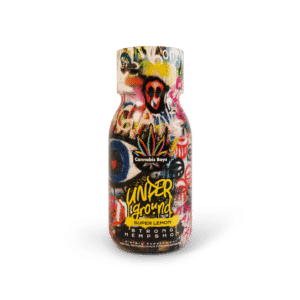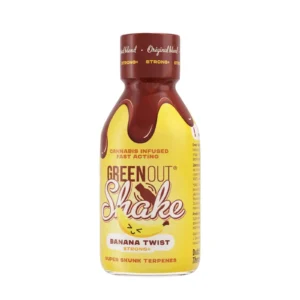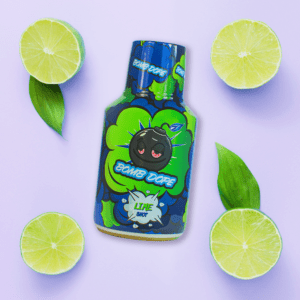Recent research on mice by scientists from Northwestern University suggests that endocannabinoids, i.e. cannabinoids produced by the human body, relieve stress, anxiety and reduce anxiety levels in the same way as hemp phytocannabinoids CBD and THC do. A better understanding of how cannabinoids produced by the human body act on the brain to relieve stress could, scientists say, lead to new avenues for treating stress-related mental disorders. The essence of this treatment would be the regulation of endocannabinoid levels.
CBD and THC – how do they relieve stress?
Scientists around the world have been researching the possibility of using hemp cannabinoids in the treatment of many different mental health problems for several years. Research shows that CBD and THC , the most widely researched and best-known cannabinoids, are used in the treatment of depression and other mood disorders, anxiety disorders, post-traumatic stress disorder (PTSD) and in alleviating the symptoms of chronic stress. They are also being studied for their benefits for patients experiencing psychotic states.
Studies conducted over the years have established that CBD (in any dose) and THC (in small doses) relieve stress, anxiety and anxiety symptoms. Under the influence of a stressful stimulus, a complex process of mobilizing the body to face a new situation begins and the body's balance is disturbed. This process involves, among others: nervous, hormonal and immune systems.
Hemp compounds activate the endocannabinoid system (ECS) and through it influence the mentioned systems and inhibit the stress response. Studies have shown that hemp cannabinoids can reduce the level of activation of the HPA axis, which is crucial for the body's neurohormonal response to stress.
Does the body itself activate the endocannabinoid system to calm down?
With such a large scale of research on the effects of cannabis on the body, it is quite surprising that the patterns of brain activity and the neural pathways and circuits influenced by endocannabinoids (cannabinoids produced by the human body ) are still relatively poorly researched.
Research conducted in 2023 by scientists from Northwestern University suggests that our brains remain active under stress. Experts have found that cannabinoid molecules released by our own brain network seem to affect the brain in a similar way to THC - for example, by activating the same brain receptors.
A new study in mice published in Cell Reports shows that the amygdala (a key emotional center of the brain) releases endocannabinoid molecules under stress. Their task is to suppress the stress response coming from the hippocampus (the center of memory and emotions in the brain). These results support the hypothesis that the release of endocannabinoids is part of the body's natural response to stress.
Researchers believe that understanding how the brain adapts to stress at the molecular, cellular and circuit levels could provide important information about how stress translates into mood disorders. It may also reveal new therapeutic targets for of stress-related disorders
Endocannabinoids can protect us against the consequences of stress
Exposure to strong, frequent and/or prolonged stress increases the risk of developing mental or exacerbating the symptoms of existing disorders, e.g. anxiety disorders, depression, post-traumatic stress (PTSD). A study in mice suggests that impairment of the endocannabinoid signaling system in the brain may lead to greater susceptibility to developing stress-related mental disorders, including depression and post-traumatic stress disorder (PTSD).
The course of the examination
In the study, Northwestern scientists used a new protein sensor that can detect the presence of cannabinoid molecules at specific brain synapses in real time. This helped show that high amygdala activity can trigger the release of endocannabinoids. The sensor also showed that endocannabinoids were released by several different types of stress in the mice.
The researchers then removed the CB1 receptors that bound endocannabinoids released by the mice's brains under stress. This resulted in the mice's poorer ability to cope with stress and lack of motivation - the mice reacted to stress passively and did not take action to improve their well-being. This latter finding may be related to anhedonia, a decrease in pleasure often experienced by patients with stress-related disorders such as depression and post-traumatic stress disorder (PTSD).
Researchers believe that the endocannabinoid system is one of the leading targets for research into new methods stress-related mental disorders Scientists plan to conduct further research to determine whether stress-related mental disorders can be treated by increasing the levels of endocannabinoids.









[…] doses of THC, administered at a frequency individually planned with a doctor, relieve stress and reduce the level of anxiety, especially social anxiety. Even low doses of this cannabinoid can […]
[…] cells in the human body are systematically replaced. New cells are created in the process of cell division and […]
[…] is just one of many cannabinoids found in cannabis. Other cannabinoids include THC, CBG and CBC. Cannabinoids affect the body's endocannabinoid system, which plays a role [...]
[…] are also important to humans because they can influence how cannabinoids (such as THC and CBD) interact with the body. Specifically, terpenes can increase or decrease […]
[…] this is how CBGA gained the nickname “the mother of all cannabinoids”. Like CBD, CBG is called a substance that does not have psychoactive effects, but as in […]
[…] take the medicine recommended by the doctor. Small doses are intended to develop the body's tolerance to THC before reaching the target dose of the drug, they are not always referred to as treatment itself in […]
[…] the likely reason is that they confuse CBD with THC, the main psychoactive compound in cannabis. While THC can actually cause […]
[…] the occurrence of stressful stimuli. It should be noted, however, that in the case of THC cannabis strains, stress is best relieved by using small doses of the substance. High doses of THC often make people feel […]
[…] The research team followed 25 people with cancer who used cannabis for two weeks. After assessing participants' pain levels, sleep patterns, and cognitive function during the baseline visit, researchers instructed them to purchase an edible cannabis product of their choice from the dispensary. Subjects chose gummies, chocolates, baked goods, tinctures, and tablets that had different proportions and concentrations of CBD and THC cannabinoids. […]
[…] doctors. CBD was well tolerated, and the incidence of side effects was similar between the CBD and […]
[…] On the other hand, CBD is a natural compound that has not shown any side effects in clinical trials. This is likely due to the fact that it does not affect the body's endocannabinoid system in the same way as THC. […]
[…] or cannabigerol, is a cannabinoid found in hemp plants. It is similar to CBD and THC, but does not produce the psychoactive effects of THC. This means that after taking CBG you will not […]
[…] is one of the most important regulatory processes occurring in the human body. It is responsible for the efficiency of the use of cognitive functions, mental well-being and […]
[…] studied how various cannabinoids, including CBD and psychoactive THC, affect human immune cells. They found that all tested compounds inhibit […]
[…] with depression, a common phenomenon is a deficiency of endocannabinoids, i.e. substances naturally produced by the body that stimulate the […]
[...] to release all active substances from it by inhaling odorless vapor into the lungs. Thanks to this, cannabinoids enter the body directly. At the same time, there is no combustion process, so the method is safe and definitely [...]
[…] like other cannabinoids, it is found in the hemp plant. However, it is clearly different from most of the […]
[…] the body reacts to CBD differently, so there is no one “universal” dose that should be taken to achieve […]